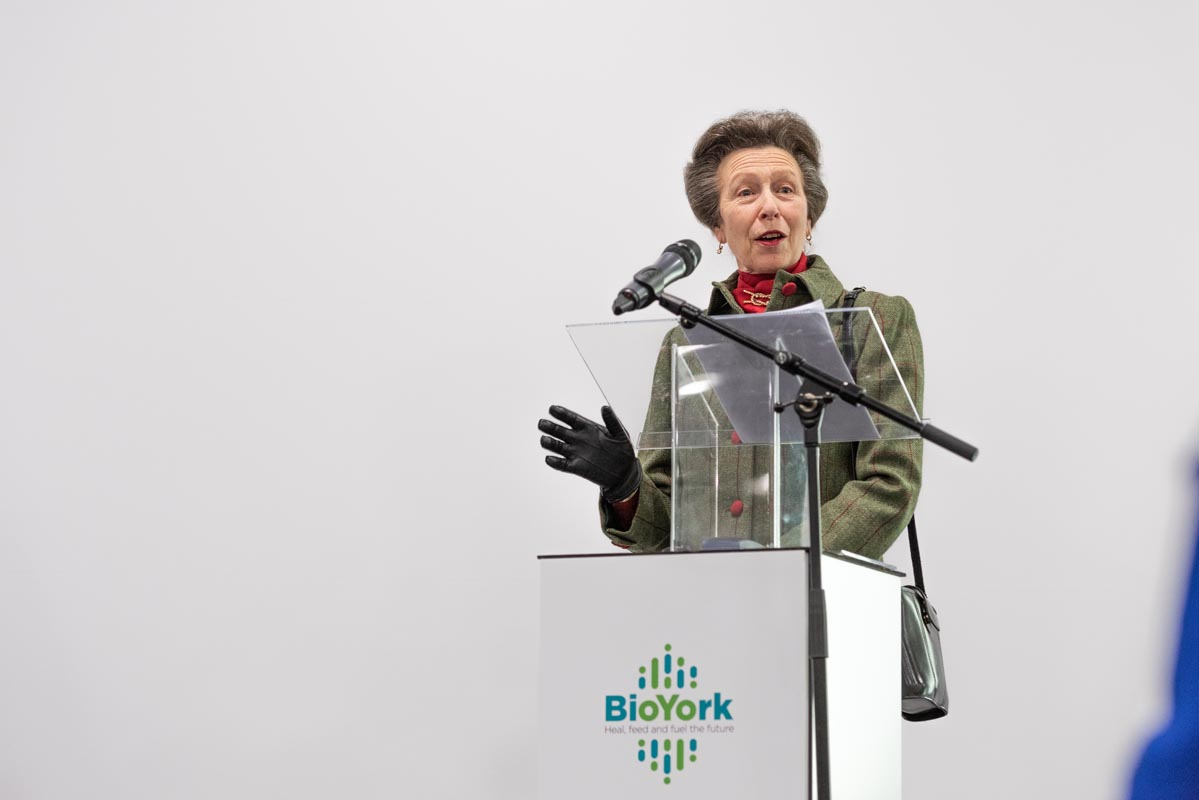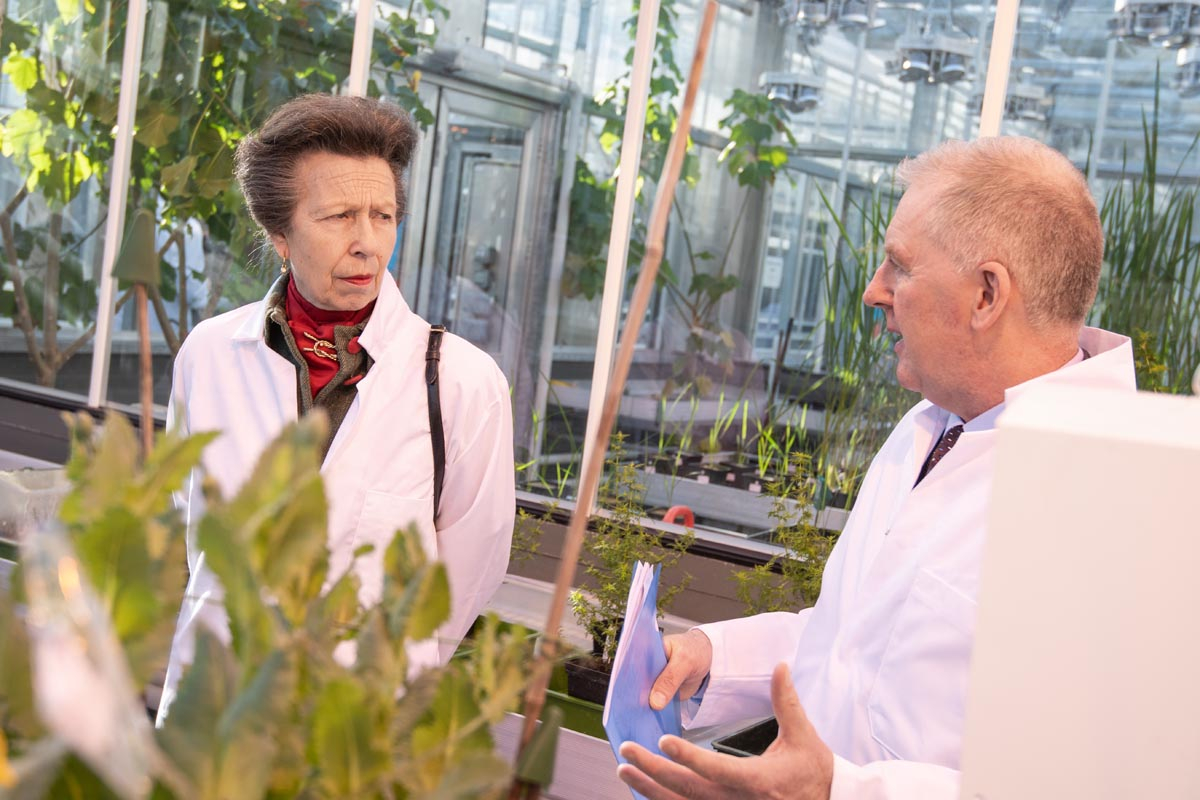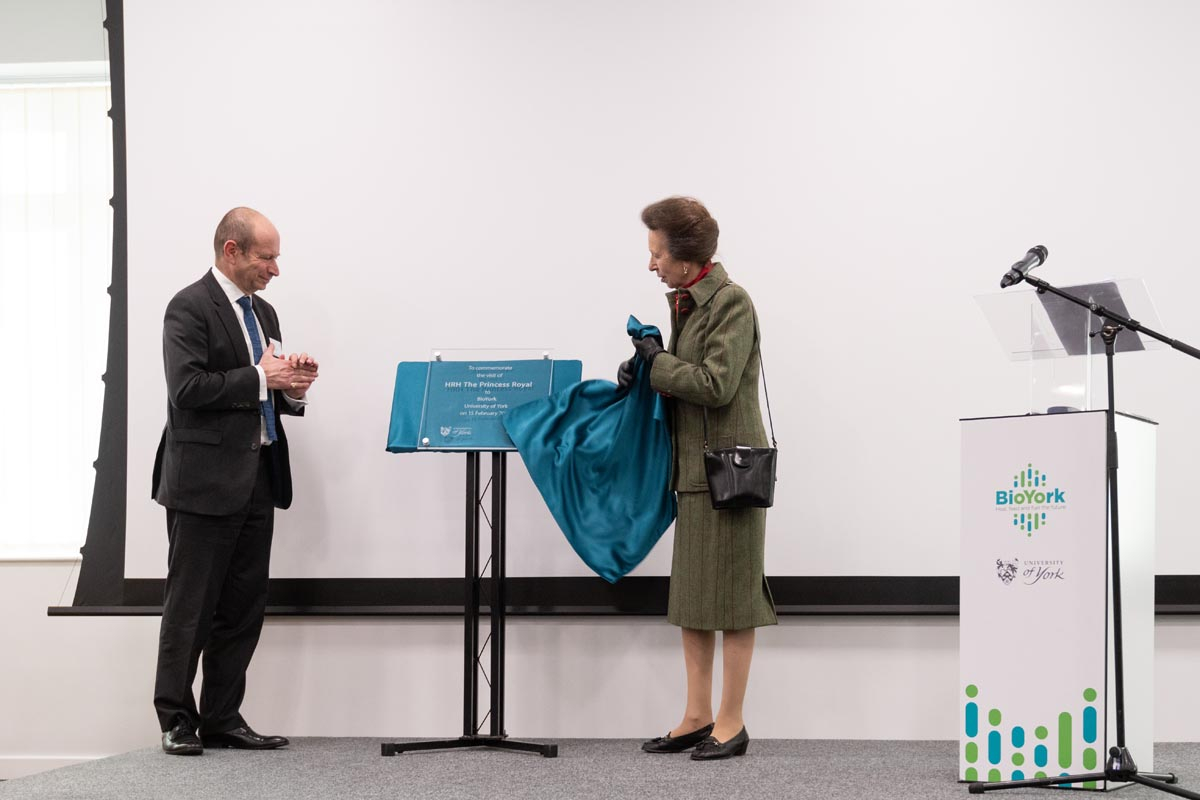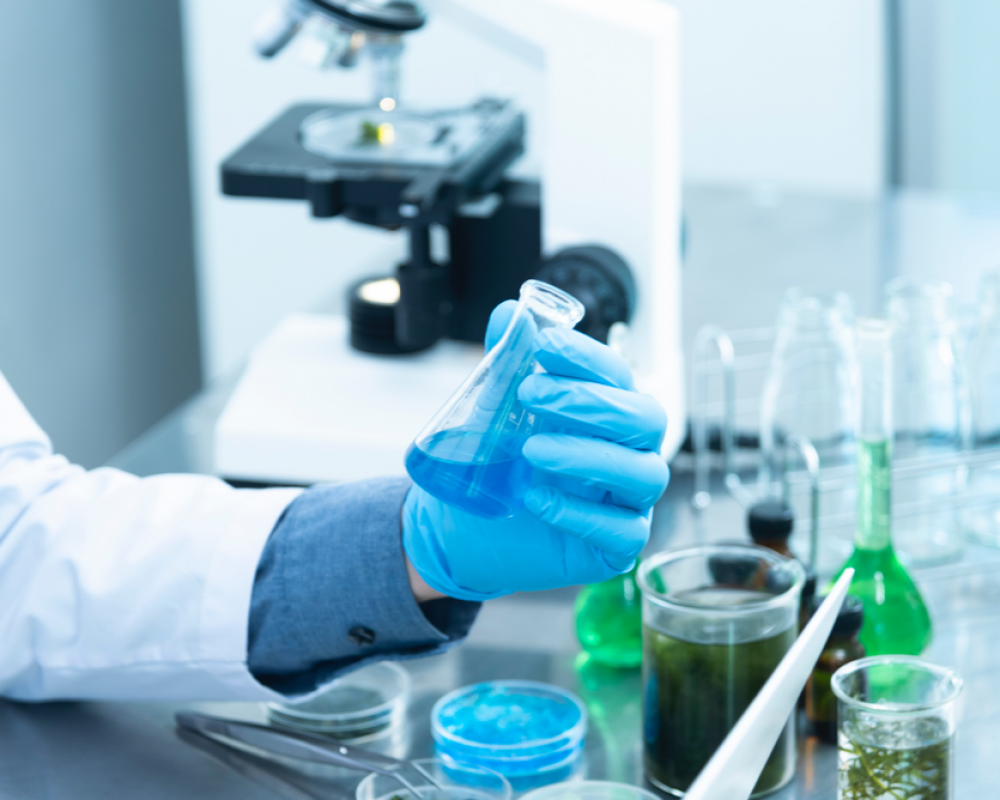
HRH The Princess Royal participated in the launch of BioYork, a new bioeconomy initiative which includes the BDC.
Her Royal Highness The Princess Royal visited the University of York on 15th February to participate in the launch of BioYork, a new bioeconomy initiative. BioYork has been established as a focus for bioeconomy activity in the North of England as part of an interdisciplinary approach to research into health, food and bio-based fuel and chemicals. The bioeconomy refers to all economic activity originating from products and processes made with renewable bio-based resources.
BioYork will translate cutting-edge research into technologies, processes and products to address the major 21st-century challenges of healing, feeding and fuelling the world:
Heal: Novel uses of nature’s solutions for healthcare and pharmaceuticals
Feed: Improving the productivity, sustainability and nutritional value of food
Fuel: Developing new sources of bio-based fuels and chemicals
BioYork translational activities are facilitated by the Biorenewables Development Centre (BDC) and bioeconomy cluster development by BioVale. This hub enables the development and scale up of innovations emerging from the BioYork Research Centre as well as a first point of assistance for companies in the bioeconomy.
During her visit, The Princess Royal met senior University staff behind the initiative and toured the University’s research facilities, including the glasshouses.
The University’s Acting Vice-Chancellor, Professor Saul Tendler, said:
"It is a great honour to welcome Her Royal Highness The Princess Royal to the University. BioYork is a real expression of our commitment to make the world a better place by not only embarking on world-class fundamental research but also translating that research into applied technologies with global impact. Humanity is facing some really profound challenges: from climate change to the threat to human life from antibiotic resistance. These global challenges are ones that the University of York and BioYork are committed to solving."

The University of York’s Pro-Vice-Chancellor for Research, Professor Deborah Smith, added:
Today’s launch is a key milestone for this University that reflects our extensive and longstanding work in relation to the bioeconomy. By bringing together our world-leading researchers with industrial partners, BioYork will drive the development of UK bio-based industries to deliver growth, jobs and environmental benefits.


Professor Ian Graham from the University of York’s Department of Biology has been appointed Director of BioYork, he said:
BioYork brings together researchers and industry to translate and transform cutting edge research into technologies, processes and products across the bioeconomy. I am delighted that The Princess Royal visited the campus to see the important work we do across the bioeconomy.
There are over 16,000 bioeconomy related companies in the North of England, with a total annual turnover of over £91 billion, employing around 415,000 people.
The bioeconomy is estimated to be worth £220 billion in the UK alone, and the Government’s Industrial Strategy is setting ambitious targets to double its size by 2030.
Notes to editors:
BioYork will be composed of three related components, all driven and directed by industry demand:
- The BioYork Research Centre will act as a hub for UK bioeconomy research and development and will drive and shape a wide range of linkages between academia and industry.
- BioYork translational activities are facilitated by the Biorenewables Development Centre (BDC) and bioeconomy cluster development by BioVale. This hub enables the development and scale up of innovations emerging from the BioYork Research Centre as well as a first point of assistance for companies in the bioeconomy.
- Demonstrator facilities that offer potential sites for larger scale bioeconomy demonstrators, providing businesses with the opportunity to test their technologies at multi-tonne scale. Together with the Research Centre and Translational Centre, these demonstrators will provide a route to rapidly take new innovations through to full-scale commercial operations and so compete effectively in the global race to establish sustainable bioeconomy industries.
